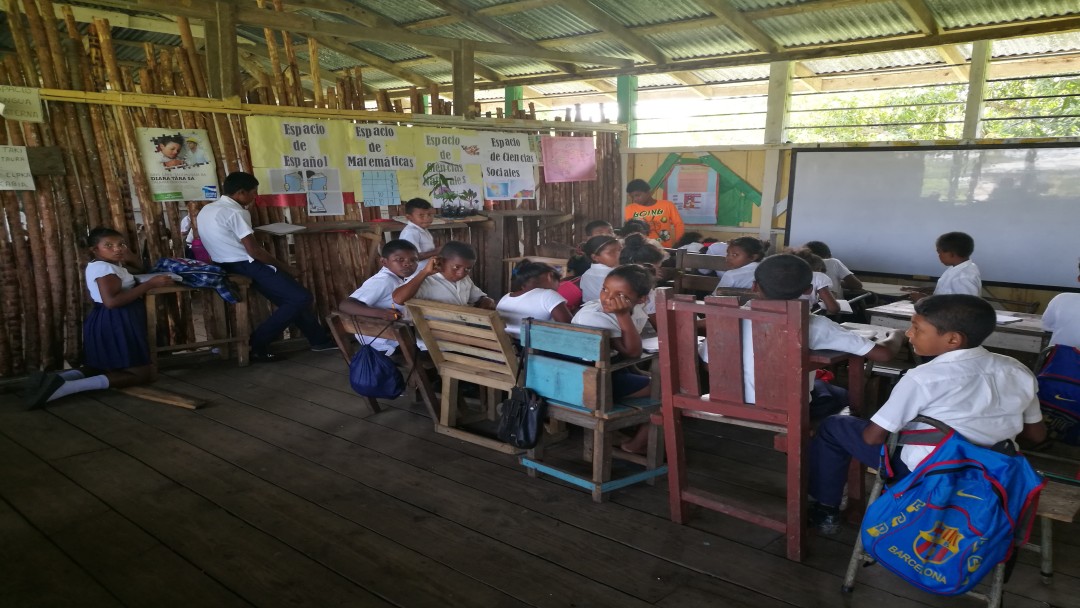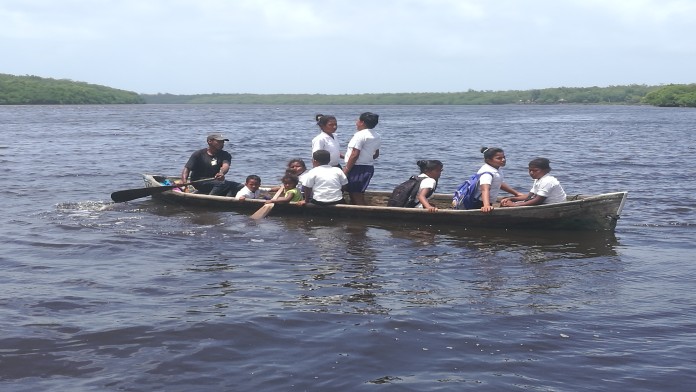

KfW is providing support for the rehabilitation and electricity supply of twelve schools and kindergartens on the poorly accessible east coast of Honduras. The indigenous people living there benefit in particular from school rehabilitations. Rehabilitation is part of a large programme to improve the educational infrastructure that has been underway for many years.
The Mosquitia region on the east coast of Honduras can only be reached by plane from the capital Tegucigalpa. Some communities are even only accessible by a boat trip lasting several hours. The standard of school infrastructure there is not yet at the same level as in the other parts of the country. Large parts of Mosquitia are not connected to the national grid. Many families do not use electricity at all. Diesel generators are usually the only way to supply energy.
This is about to change. KfW is providing funding of around EUR 4 million to rehabilitate six schools and their affiliated kindergartens. The buildings are being completely overhauled. Solar panels on the roof will be installed to provide electricity. Until now, the schools had no electricity. In the future, each facility will be equipped with a solar-powered kitchen and computer room. The costs of rehabilitating each school are unusually high. This is due to the high travel costs and the complex transport of the building material.
Mosquitia is predominantly inhabited by Miskito people and other indigenous peoples, who are among the most disadvantaged groups in Honduras. Malnutrition is widespread. The development of the department of Gracias a Dios, which is also responsible for administration of the Mosquitia region, is at the top of the Honduran government's agenda, because there is still a lot of catching up to do. In the fourth phase, PROMINE, which has been helping to improve the education infrastructure in Honduras since 2012, is being extended for the first time to include the Gracias a Dios department and, with it, Mosquitia. A total of 29 schools are being rehabilitated in this current fourth phase. However, a lockdown has delayed the work. Regardless of this, the fifth phase of the project is now in the preparation stage.
Girls in particular will benefit from the school rehabilitation because, until now, they have frequently dropped out of school very early. Their first menstrual period is usually the reason. Schools are now being rehabilitated to provide safe sanitary facilities separated by gender. The new schools are also spacious and clearly organised. The teaching staff has a good view of the courtyard. This reduces the risk of sexual and violent assault; girls can feel safe in schools. All schools in the project are also designed to be accessible. Girls also benefit more from school meals than boys: school meals are one reason for many parents to send girls to school instead of making them do chores at home.
Development cooperation experience shows that early pregnancies become less common the longer girls attend school. Currently, early pregnancies and high birth rates are still common in Gracias a Dios.
Honduras is marked by extreme social inequality, more than half of the ten million inhabitants live below the poverty line, mainly indigenous peoples. The rehabilitation of schools in Mosquitia particularly benefits this group. More than 2,000 children and their families will benefit from the project. The programme will also create around 160 jobs.
Share page
To share the content of this page with your network, click on one of the icons below.
Note on data protection: When you share content, your personal data is transferred to the selected network.
Data protection
Alternatively, you can also copy the short link: kfw-entwicklungsbank.de/s/enzBX9vf
Copy link Link copied